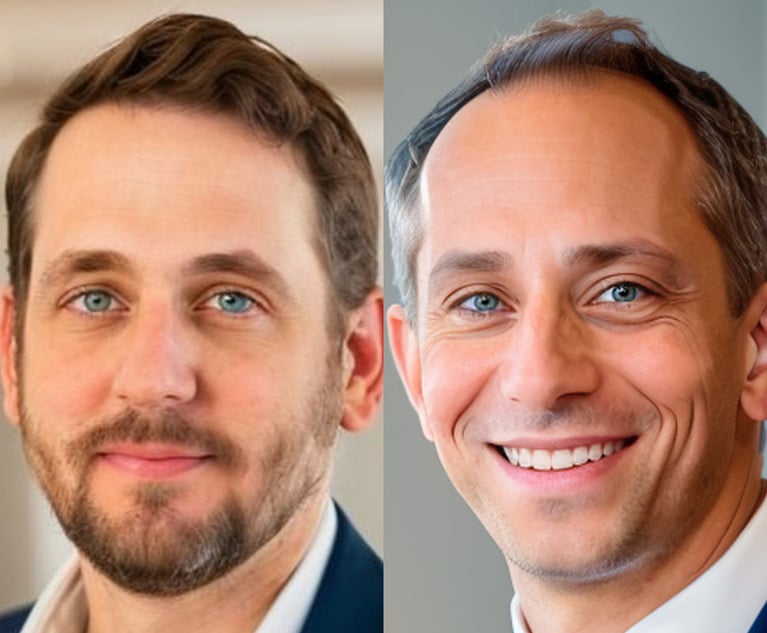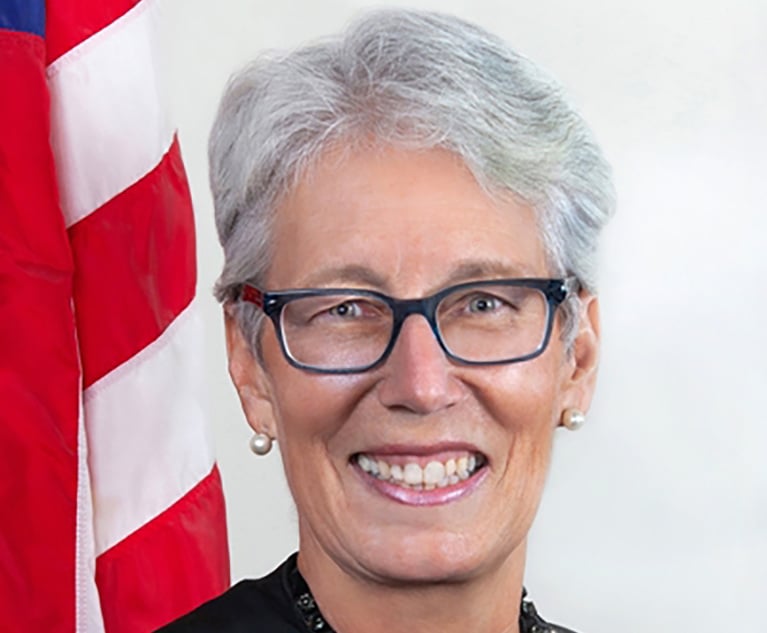Del. Supreme Court Refuses to Lift Stay in Unclaimed Property Lawsuit
A three-judge panel of the high court left in place a Chancery Court decision that stayed a Department of Finance lawsuit seeking to enforce an administrative subpoena that would allow the state to investigate the firm's compliance with the state's escheat laws.
June 18, 2019 at 06:09 PM
4 minute read
 Delaware Supreme Court.
Delaware Supreme Court.
The Delaware Supreme Court on Tuesday said it would be up to a federal court judge to decide an Illinois-based company's challenge to the state's unclaimed property collection laws.
A three-judge panel of the high court left in place a Chancery Court decision that stayed a Department of Finance lawsuit seeking to enforce an administrative subpoena that would allow the state to investigate the firm's compliance with the state's escheat laws.
Vice Chancellor Joseph R. Slights III ruled earlier this year that the case before him should be put on hold in favor of Univar's own suit in federal court, where the global chemical and ingredients distributor claims Delaware statute is unconstitutional and improperly allows the state to reach back decades in conducting its audit.
The federal action, he said, encompassed the much narrower issue of whether to enforce the subpoena, and a Chancery Court stay would avoid the possibility of duplication or conflicting rulings. He did, however, indicate that he could be willing to lift the stay, should the district court kick the subpoena issue back to him.
The state asked Slights in April to authorize a direct appeal to the Supreme Court on the grounds that the case raised a novel issue of Delaware law and challenged the constitutionality of state statute.
Attorneys for the Department of Finance argued that a provision of state law charged the Chancery Court with “expeditiously” hearing enforcement actions arising under Delaware's unclaimed property collection laws and that Slight's order, for the first time, touched on the question of whether such actions could be stayed.
The stay, they argued, improperly would allow a federal judge to decide constitutional questions that ought to be left to the state court.
Slights, however, blocked the maneuver, known as interlocutory appeal, in an April 18 order that criticized the state's tactics in trying to litigate the constitutionality of Delaware's escheat laws simultaneously in two different courts.
In his ruling, Slights said the Department of Finance had waited until Univar filed its lawsuit to bring its Chancery Court enforcement action and then refused to seek expedited resolution of threshold constitutional and preemption issues in the U.S. District Court for the District of Delaware.
On Tuesday, Chief Justice Leo E. Strine Jr. agreed that interlocutory appeal was not warranted in the case.
“Duplicative or conflicting proceedings typically do not yield expeditious results,” he said in a 6-page order.
“Exceptional circumstances that would merit interlocutory review of the decision of the Court of Chancery do not exist in this case, and the potential benefits of interlocutory review do not outweigh the inefficiency, disruption, and probable costs caused by an interlocutory appeal.”
An attorney with the Delaware Department of Justice, which is representing the state Tuesday, alerted the U.S. District Court for the District of Delaware to the ruling. Attorneys from both sides were not immediately available to comment.
Univar has claimed that the state's audit is an unreasonable search and seizure, which subjects the company to an unconstitutional taking by the government and deprives it of its due-process rights under the Fourteenth Amendment.
The state is represented in the enforcement action by Caroline Lee Cross and Elizabeth R. McFarlan of the Delaware Department of Justice, as well as Steven S. Rosenthal, Tiffany R. Moseley and John David Taliaferro of Loeb & Loeb in New York and Melanie K. Sharp, Martin S. Lessner, Mary F. Dugan and James M. Deal of Young Conaway Stargatt & Taylor in Wilmington.
Univar is represented by Michael P. Kelly, David A. White and Matthew J. Rifino of McCarter & English and Jameel S. Turner and James G. Ryan of Bailey Cavalieri in Columbus, Ohio.
The enforcement action, filed in the Court of Chancery, is captioned State of Delaware v. Univar.
This content has been archived. It is available through our partners, LexisNexis® and Bloomberg Law.
To view this content, please continue to their sites.
Not a Lexis Subscriber?
Subscribe Now
Not a Bloomberg Law Subscriber?
Subscribe Now
NOT FOR REPRINT
© 2025 ALM Global, LLC, All Rights Reserved. Request academic re-use from www.copyright.com. All other uses, submit a request to [email protected]. For more information visit Asset & Logo Licensing.
You Might Like
View All
Attorneys, Professors Share Support for Chancellor Following Musk's Online Attacks
4 minute read

Jurden Announces 2025 Retirement, Capping 24 Years on Superior Court
3 minute read
Trending Stories
- 1'It's Not Going to Be Pretty': PayPal, Capital One Face Novel Class Actions Over 'Poaching' Commissions Owed Influencers
- 211th Circuit Rejects Trump's Emergency Request as DOJ Prepares to Release Special Counsel's Final Report
- 3Supreme Court Takes Up Challenge to ACA Task Force
- 4'Tragedy of Unspeakable Proportions:' Could Edison, DWP, Face Lawsuits Over LA Wildfires?
- 5Meta Pulls Plug on DEI Programs
Who Got The Work
Michael G. Bongiorno, Andrew Scott Dulberg and Elizabeth E. Driscoll from Wilmer Cutler Pickering Hale and Dorr have stepped in to represent Symbotic Inc., an A.I.-enabled technology platform that focuses on increasing supply chain efficiency, and other defendants in a pending shareholder derivative lawsuit. The case, filed Oct. 2 in Massachusetts District Court by the Brown Law Firm on behalf of Stephen Austen, accuses certain officers and directors of misleading investors in regard to Symbotic's potential for margin growth by failing to disclose that the company was not equipped to timely deploy its systems or manage expenses through project delays. The case, assigned to U.S. District Judge Nathaniel M. Gorton, is 1:24-cv-12522, Austen v. Cohen et al.
Who Got The Work
Edmund Polubinski and Marie Killmond of Davis Polk & Wardwell have entered appearances for data platform software development company MongoDB and other defendants in a pending shareholder derivative lawsuit. The action, filed Oct. 7 in New York Southern District Court by the Brown Law Firm, accuses the company's directors and/or officers of falsely expressing confidence in the company’s restructuring of its sales incentive plan and downplaying the severity of decreases in its upfront commitments. The case is 1:24-cv-07594, Roy v. Ittycheria et al.
Who Got The Work
Amy O. Bruchs and Kurt F. Ellison of Michael Best & Friedrich have entered appearances for Epic Systems Corp. in a pending employment discrimination lawsuit. The suit was filed Sept. 7 in Wisconsin Western District Court by Levine Eisberner LLC and Siri & Glimstad on behalf of a project manager who claims that he was wrongfully terminated after applying for a religious exemption to the defendant's COVID-19 vaccine mandate. The case, assigned to U.S. Magistrate Judge Anita Marie Boor, is 3:24-cv-00630, Secker, Nathan v. Epic Systems Corporation.
Who Got The Work
David X. Sullivan, Thomas J. Finn and Gregory A. Hall from McCarter & English have entered appearances for Sunrun Installation Services in a pending civil rights lawsuit. The complaint was filed Sept. 4 in Connecticut District Court by attorney Robert M. Berke on behalf of former employee George Edward Steins, who was arrested and charged with employing an unregistered home improvement salesperson. The complaint alleges that had Sunrun informed the Connecticut Department of Consumer Protection that the plaintiff's employment had ended in 2017 and that he no longer held Sunrun's home improvement contractor license, he would not have been hit with charges, which were dismissed in May 2024. The case, assigned to U.S. District Judge Jeffrey A. Meyer, is 3:24-cv-01423, Steins v. Sunrun, Inc. et al.
Who Got The Work
Greenberg Traurig shareholder Joshua L. Raskin has entered an appearance for boohoo.com UK Ltd. in a pending patent infringement lawsuit. The suit, filed Sept. 3 in Texas Eastern District Court by Rozier Hardt McDonough on behalf of Alto Dynamics, asserts five patents related to an online shopping platform. The case, assigned to U.S. District Judge Rodney Gilstrap, is 2:24-cv-00719, Alto Dynamics, LLC v. boohoo.com UK Limited.
Featured Firms
Law Offices of Gary Martin Hays & Associates, P.C.
(470) 294-1674
Law Offices of Mark E. Salomone
(857) 444-6468
Smith & Hassler
(713) 739-1250






